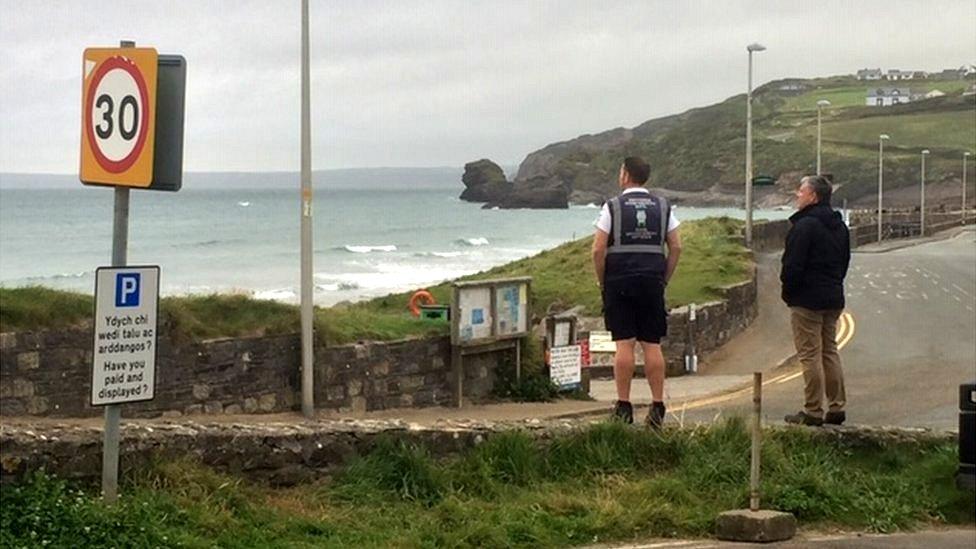Covid: Pop-up campsite rules 'harming communities'
- Published
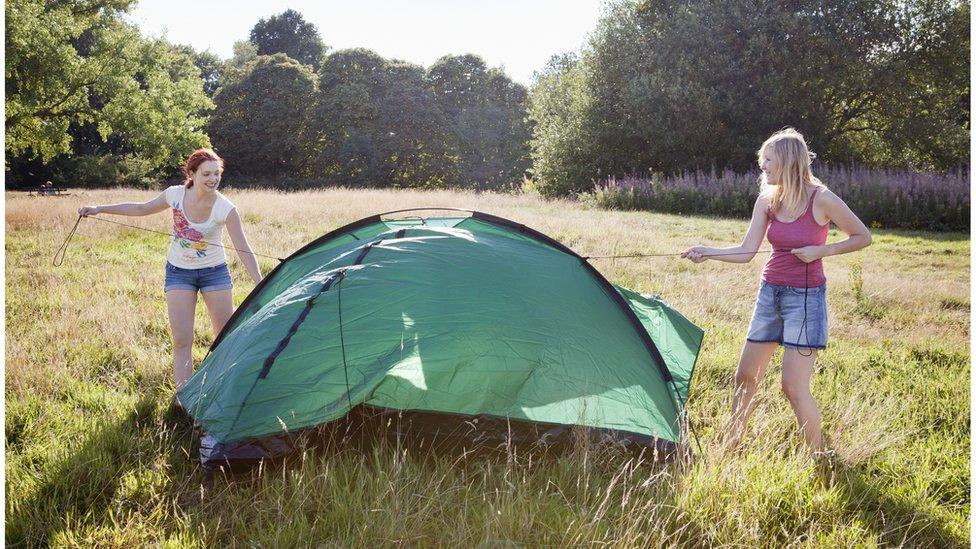
Demand for pitches has surged, with many choosing to holiday in the UK because of Covid rules on travel abroad
There are fears rules making it easier for pop-up campsites to open during the Covid pandemic have led to a "free-for-all", harming rural communities.
Landowners can open campsites for up to 56 days without planning permission, after rules were relaxed.
While owners say the sites are boosting tourism, some residents claim their communities have been damaged after campsites "sprang up overnight".
The Welsh government said the rules were helping the tourism sector.
With more people holidaying within the UK this summer, because of Covid rules on travel abroad, demand for camping in parts of Wales has risen, with reports of popular sites being booked up for months.
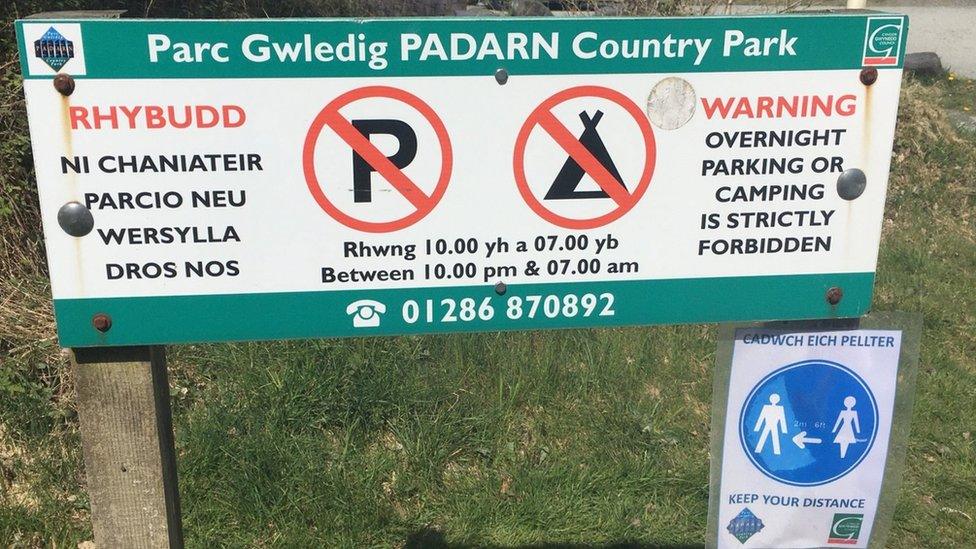
National park authorities say they have seen an increase in illegal camping since restrictions eased
During the pandemic the Welsh government temporarily relaxed planning rules for pop-up campsites, external.
This increased the number of days land can be used for campsites without planning permission - from 28 to 56 days - until January 2022.
In England the UK government has gone a step further and advised councils not to clampdown on landowners who stay open longer, breaching the time limit.
But with pop-up campsites not requiring planning scrutiny - where the impact on highways and environment would be considered - there are fears the sites are adversely impacting communities.
'Someone will get hurt'
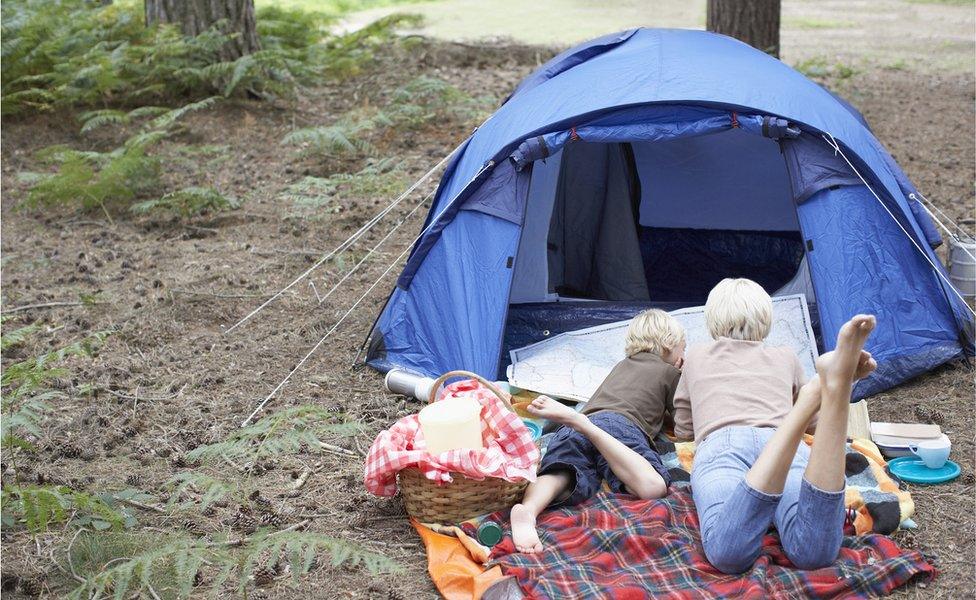
Darren Millar MS said while the change had been "well intended", he did not think ministers had appreciated the consequences for some communities
In a small community on the edge of Snowdonia National Park, one father said the influx in pop-up campsites was causing chaos, with fears about pollution and an influx of traffic using county roads.
"Overnight we had a campsite on our doorstep, we had a surge of 40 cars coming up and down the lane, people who don't know the area, with no passing place and no pavement," he said.
The man, who did not want to be named, said he feared there would be an accident on the lane, which is used by cyclists, runners and horse riders, and has blind bends.
"This is not about camping, we love camping ourselves, but there's a fog of 40 camp fires burning across the valley every night," he said.
He added he was now to scared to let his children play outside because of the traffic, and feared if similar rules were allowed next summer he would have to move.
"It is the idea that people can just put these things up with no warning or consultation... some areas can handle it, some areas it can't... it is unsafe, if it happens again it will kill us."
Calls for a 'level playing field'
Darren Millar, Conservative Member of the Senedd for Clwyd West, said he had been contacted by many residents with concerns about safety, noise, and pollution caused by the sites.
He said while the change had been "well intended", he did not think ministers had appreciated the consequences for some communities.
"Campsites with planning permission are subject to rigorous scrutiny to ensure adequate access, infrastructure and facilities, along with the impact on local residents, but the new 56-day rule means that sites can pop up anywhere without any consideration of such matters," he said.
Mr Millar called for councils to use licensing powers to regulate the sites, to ensure a "level playing field" with permanent campsites and to protect communities.
The British Holiday and Home Parks Association, which represents 448 parks in Wales, said permanent parks significantly contributed to the economy and had to conform to a long list of planning requirements in comparison.
'It was derelict for years'
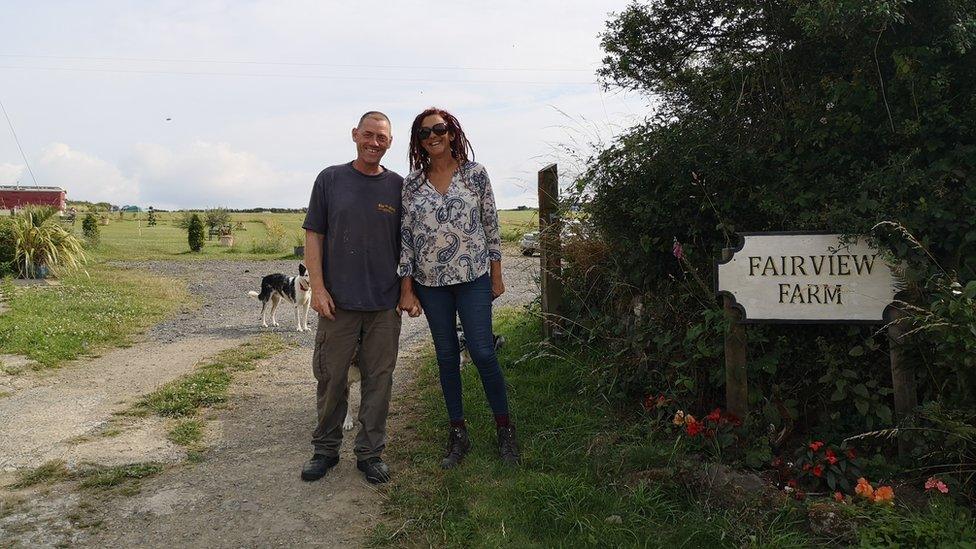
Ingrid and John Angel say repurposing their land has allowed people to explore the local area
After buying a plot of derelict farmland near Haverford West, Pembrokeshire, nearly two years ago, Ingrid and John Angel used their time in lockdown to start clearing the site.
When Ingrid's friends asked if they could camp there, she decided to set up a pop-up campsite and has used the money to plant more than 300 trees.
She said while a couple of holiday-home owners had complained, the community had been very supportive and she was now looking to open a retreat for which she would apply for planning permission.
"The place had been empty for 10 years and they were really pleased to see it being used," she said.
"People are saying they have discovered so many new things in the area, which is really helping tourism."
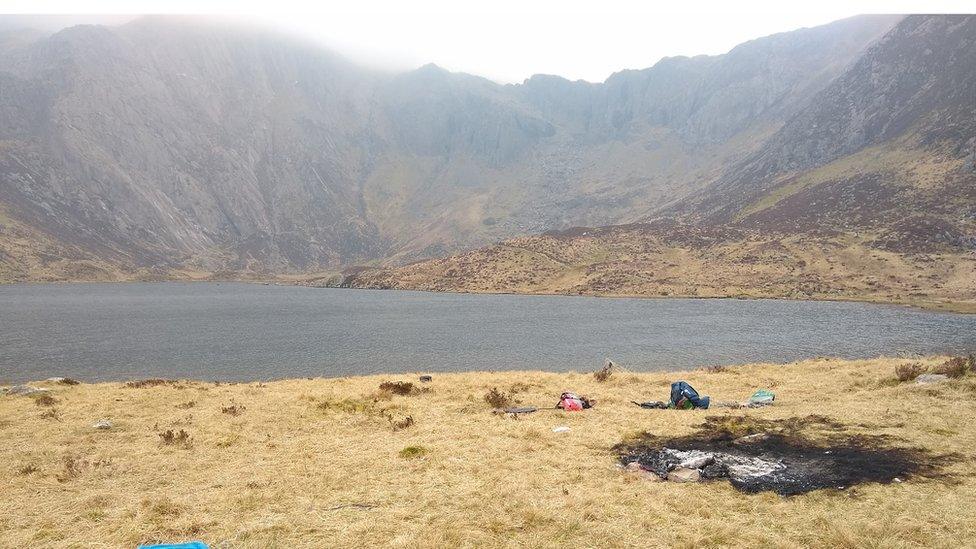
Campaigners say allowing more pop-up sites is helping to stop people fly-camping at beauty spots
Dan Yates, founder of booking site Pitchup.com, said the increase in pop-up campsites was allowing more people to enjoy the countryside in a "low-impact way", with the sites bringing "vital income" to rural communities.
Of the 385 bookable sites in Wales, 67 were pop-ups last month.
He said the site worked with owners to make sure they were following best practice, adding the vast majority lived in the community and were "mindful of local sensitivities" and worked hard to mitigate them.
Meanwhile, the National Farmers Union (NFU) Cymru said the relaxation of rules had allowed more people to enjoy the countryside and given farmers "additional short-term diversification opportunities".
'Increase in staycations'
The Welsh government said extending the time limit for temporary use of land was part of a package of measures to help support economic recovery.
"With restrictions upon foreign travel, the temporary permitted development rights can provide additional capacity for campsites and broaden the range of tourist provision available to cater for the increase in 'staycations'," they said.
"Landowners are responsible for operating pop-up campsites in ways that minimise disturbance to local residents and local authorities have powers to intervene where statutory nuisances occur."

EXPLORE WALES FROM HOME: Join Iolo Williams for a guided tour of Pembrokeshire’s hidden gems
WALK THE WELSH COASTAL PATH: 900 miles of the most picturesque coastal locations to visit this summer

- Published25 July 2021
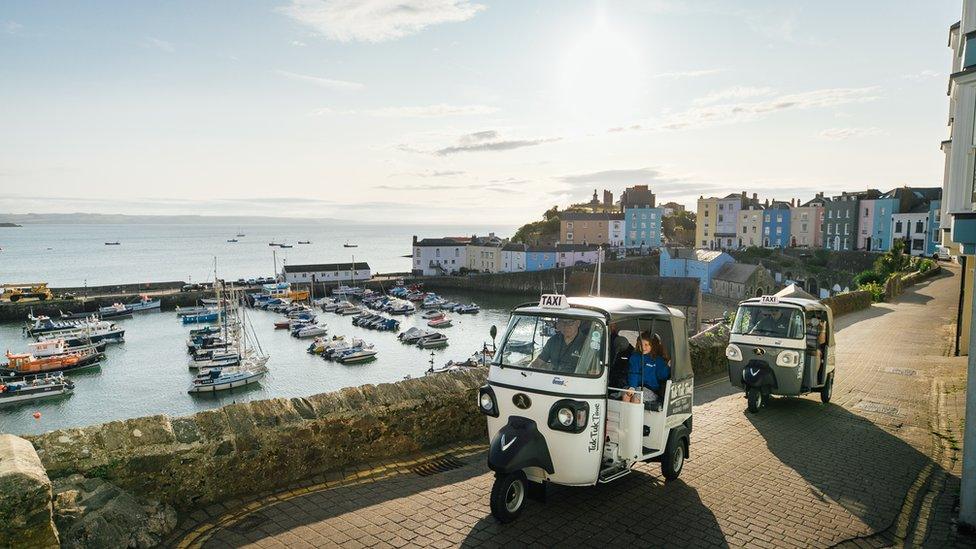
- Published27 July 2021
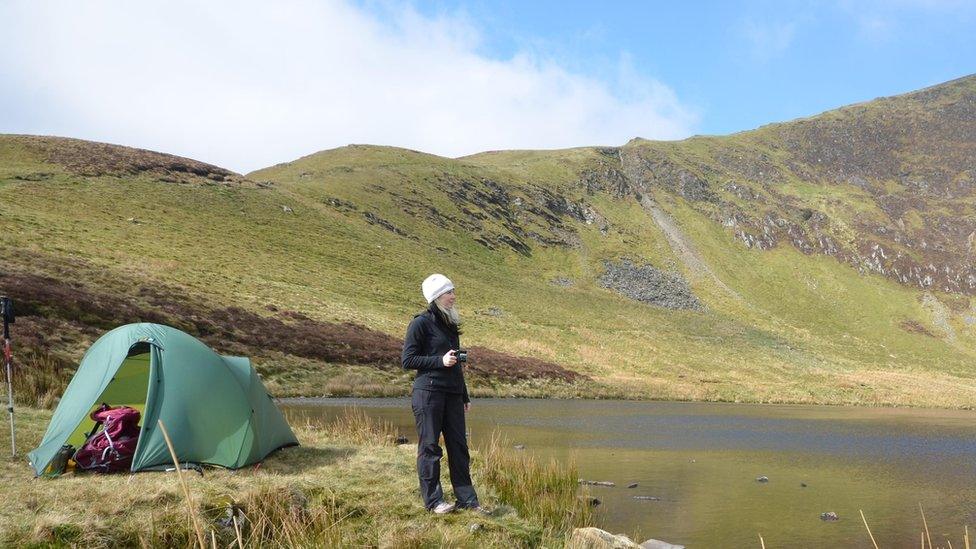
- Published7 August 2020
